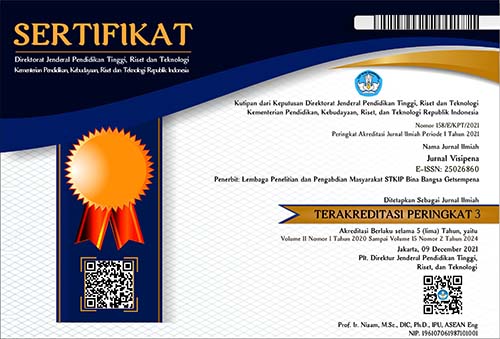TEACHING MATHEMATICS WITH PIAGET'S THEORY
Abstract
Piaget's theory of cognitive development is a comprehensive theory about the nature and development of human intelligence first developed by Jean Piaget. It is primarily known as a developmental stage theory, but in fact, it deals with the nature of knowledge itself and how humans come gradually to acquire it, construct it, and use it. Moreover, Piaget claims the idea that cognitive development is at the centre of human organism and language is contingent on cognitive development. Below, there is first a short description of Piaget's views about the nature of intelligence and then a description of the stages through which it develops until maturity.This paper presented student’s way of thinking in mathematics learning. Jean Piaget’s theory brought here as the main concept applied on children thinking process in mathematics. Through observation, some fact emerges in every stage of development process. Those display on “Cant and But Can’t” Table.
Downloads
References
Copes, L. "Can College Students Reason?”, talk given at Spring 1975 meeting of Seaway Section, Mathematical Association of America, York University, Toronto.
Herron, J.D. "Piaget for Chemists", Journal of Chemical Education, 52, 146-150 (1975).
Inhelder, B. and Piaget, Jr. The Growth of Logical Thinking, Basic Books, N.Y.C., 1958.
Kohlberg, L. and Gilligan, C. "The Adolescent as a Philosopher," Daedalus, 100, 1051-1103. (1971).
Lawson, A.E. and Renner, J. W. "A Quantitative Analysis of Responses to Piagetian Tasks and its Implications for Education," Science Education, 58, 545-559 (1974).
O'Brien, T.C. "Logical Thinking in College Students", Educational Studies in Mathematics, 5, 71-79 (1973).
Piaget, J. (1964)."Development and Learning", Journal of Research in Science Teaching, 2, 176- 186.
Thornton, M.C. and Fuller, R.G. (1981). How Do College Students Solve Proportion Problems? Journal of Research in Science Teaching, 18, 335-339.




















